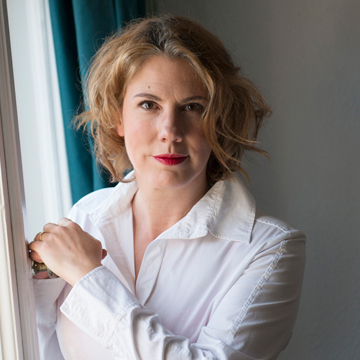On the occasion of the Digital Workshop on Gender data in the creative sector – how to bridge the gap on 11 December 2020 in the context of the EU Council Presidency Ship of Germany, EWC President Nina George takes part as rapporteur on the European book sector on the issue “Women in Literature” and presents the following keynote.
Brussels, 11 December 2020
“My name is Nina George, I am a freelance novelist since 28 years and since two years President of the European Writers’ Council, representing 46 national writers organisations from 30 countries, writing in each genre – fiction, non-fiction, academics and children books.
I will give you a brief overview on the few and fragmented existing data in the literature and book sector in Europe, mention briefly some best practice, and finish with three impulses for strategies to bridge the gender data gap, as well as the gender pay gap.
Let me start with a quote by Flemish writer Kristien Hemmerechts. She asks in “The Man, His Penis and the Knife”: “How is it possible that people continue to cling to the greater appreciation of male authors while there is no demonstrable difference in quality? “
Men review more often, longer and more benevolent men, as the pilot study #frauenzählen #counting women – filtered out; female authors receive barely 30 per cent of the available print lines and broadcast minutes, as we, a german network of authors- and women in publishing-organisations analyzed together with the University of Rostock in 70 different newspapers, tv and radio shorts on literature. This “women’s third” in the visibility in media is consistent with similar counts of book reviews in the Netherlands, the VIDA reports in England, and in Austria by the Researcher Veronika Schuchter at the University of Innsbruck. The lack of visibility is a structural problem, but still needs more data to be understood: Why are women less interesting?
Although most countries have the same number of male and female writers, men in the Netherlands have a 75% higher chance of winning a literature prize. In Spain and Slovenia, this rate for men is 86%, only topped by the Nobel Prize with 92 per cent chance, and best if you are white, male and over sixty – and if your main character is also a man.
Is this ignorance of womens achievements based on the publishers masculine focused programs, for example? In Germany, the high literature publishers reserve only one third of their hardcover hotspots for women, says the project #vorschauenzählen – counting previews. Which in consequence means, that publishers budget for promotion, and to make a writer a celebrity, is mostly spend on male writers, so its very likely that they are more reviewd and more often rewarded.
Around 21 percent of the top leading positions in publishing houses are female, as the Bücherfrauen stated. On the other hand: the book sector is female, 80 per cent of all employers are women. So maybe even women prefer to honour and to support mens’ writing?
Let me articulate the thesis: no, is does not start in the publishing houses – it’s the result of a longterm bad habits of male dominant societys.
It starts in schools. The works of male writers is preferred in the recommendations for education and academic fields, as a sample analysis showed in the year 2019 for Germany. On nine works by men, the educational canon mentions on average one work by a woman. Throughout Europe is a repeating effect of a strictly male written education canon.
“Women must write, but they cannot write if they are not allowed to forget their gender,” says Corina Koolen. The Dutch literary researcher, who analysed the private and media reviews with text and data mining and artificial intelligence tools, provided evidence in her latest book: “This is not a women’s book”: Conclusio in short: Women are always labelled with women’s literature – and books by male authors are always discussed in terms of literature, and not: mens world.
The book sector is one of the most important factors influencing the home of values in our societies. The commitment to gender equality is the defence of the pluralism of European democracies. It is therefore up to us, the sources of books and of culture, to formulate support for the task to bridge the data gap:
- We, the European Writers’ Council and our 46 organisations, would highly appreciate financial funding for an in-depth survey at European level on visibility, educational canon and fees;
- we would like to see every government encouraging to commit the book sector to get all stakeholders at one table and to discuss collective remuneration agreements, to bridge the pay gap;
- and wie demand, that public funds are allocated under parameters such as parity, bibliodiversity – and juries with a quota for its members.
Gender equality is pluralism in the smallest possible form. Consequently, democracies can no longer afford the continued marginalisation of female achievements in many European countries. ––Nina George

